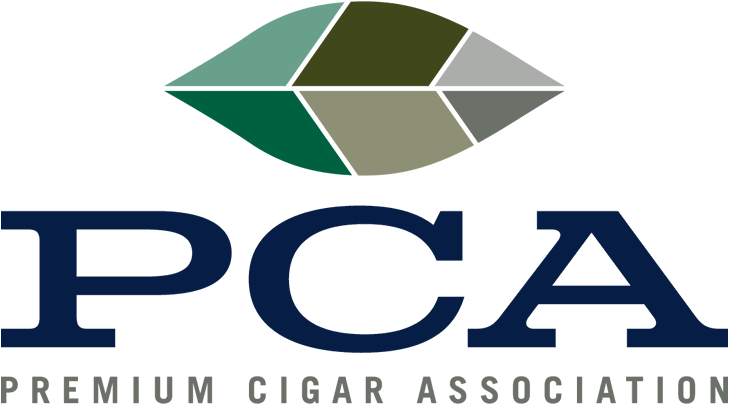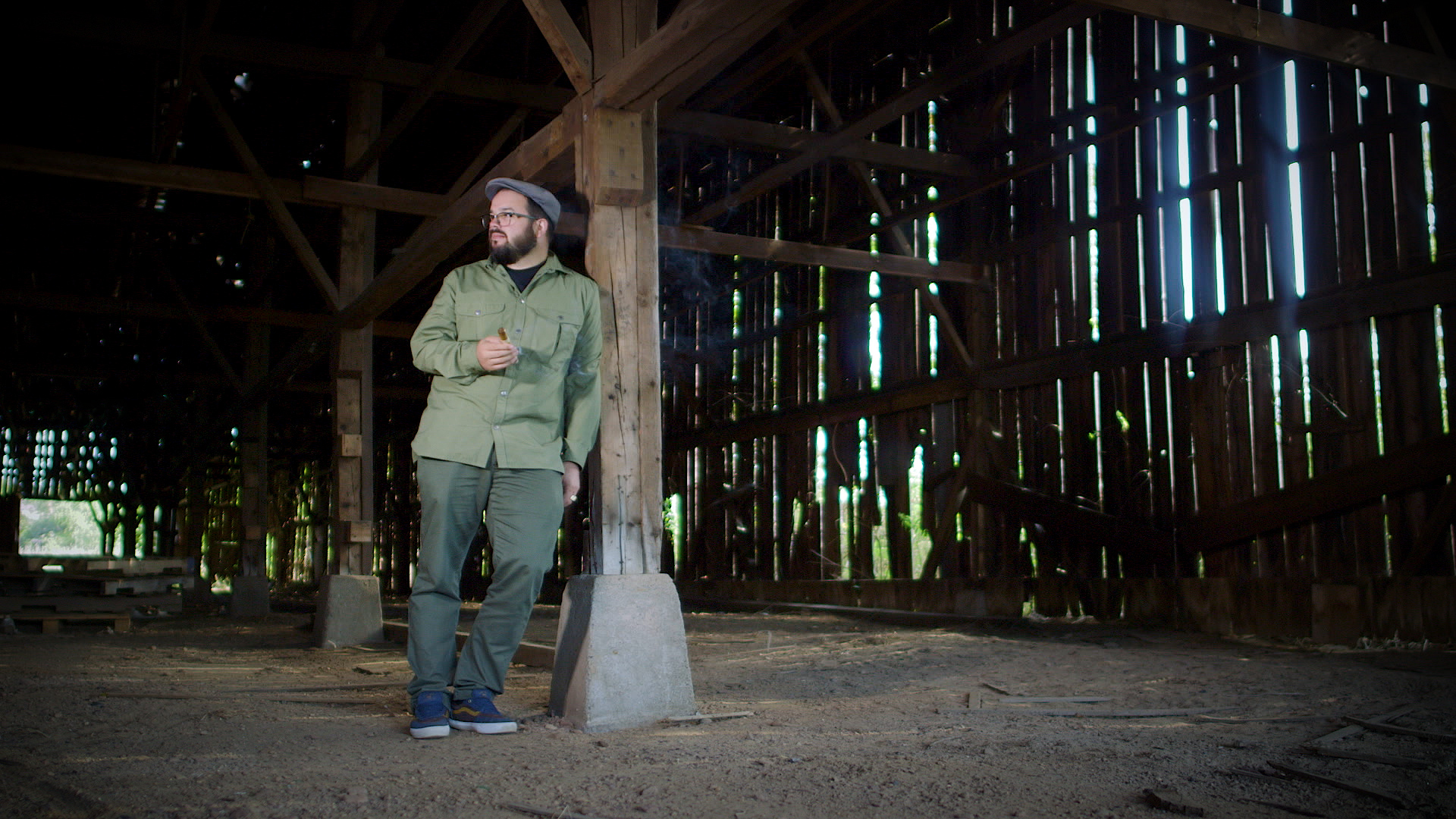
Over the past five years, Foundation Cigar Company has experienced monumental growth. With a relentless commitment to producing exceptional cigars that meet the highest standards of quality, consistency, balance and flavor, Foundation is building a brand that retailers and consumers can rely on. In January, I sat down with Nicholas Melillo, the mastermind behind the brand, to learn more about the growing brand that is emerging as leader in the premium cigar industry.
Can you share a bit about your background in the industry?
I started in the hand-made cigar business in August 1996, at the height of the cigar boom. Every Friday, my brother and I would go to the Calabash Shoppe in Hamden, Connecticut—a full-fledged tobacconist with the largest briar pipe collection in the state. And every Friday there were lines out the humidor. One day, I went up to the register and said “if you need any help ….” One week later, they hired me, and that same year, just after the 1996 RTDA Trade Show, they put me in charge of their humidor.
The shop owners, Mary Russo and Carol Velardi, became my second mothers. They saw my passion for cigars and hired me to run their humidor just as I was starting my first year at university, studying international business. When I wasn’t in class, I was in the shop. This was the cornerstone of my career in the industry. Those days are some of my fondest memories in my life and very much made me who I am today.
I graduated from college in 2000 and moved to Rome to work for the Vatican, helping pilgrims from around the world for the Gran Jubileo. I did that for some time and then backpacked around Europe, touring with Ziggy Marley and the Melody Makers. In 2002, I traveled around the world to Italy, Spain, France, India, Thailand, Laos, Vietnam, China and Japan, before returning home to the U.S. In March 2003, I set out again, this time to Nicaragua, which would become my second home.
Over the next 11-plus years, I learned how to roll, blend, ferment, develop quality control systems and helped build one of the largest factories in Nicaragua—and I had a lot of help from a lot of amazing people along the way.
By 2015, I felt I had built up a very unique experience in the industry, having worked brick and mortar, and then production and manufacturing. I felt it was time to spread my wings and start my own company. It was one of the hardest decisions of my life, but I also realized the pending FDA regulations might make it hard to start a company if I waited any longer.

Can you tell me more about your decision to launch your business?
I started with Drew Estate in March 2003, when it was just an up-and-coming brand. Back then, we worked out of the back of Nick Perdomo’s house (the back was a cigar factory). By the time I decided to leave, I had turned it into the biggest cigar factory in Nicaragua, bringing production up from 5,000 cigars per day to 105,000 cigars a day.
The team had become my family, and I had a great job and position, so deciding to leave was hard. It took a couple of years to finally decide, but finally I said to myself, “If I don’t do this, I’ll always regret it.” At the time, I knew pending FDA regulations might make it hard if I waited. In hindsight, I’m glad I made the decision when I did, otherwise I wouldn’t have made the August 2016 substantial equivalency date.
How did you come up with the name Foundation Cigar Company?
I had a list of names, but one kept ringing in my ears: FOUNDATION.
When I lived in Rome in 2000, I met the famous pipe maker, Massimo Musico (I’m also a BIG pipe smoker!), who later created Foundation by Masimo Musico. We became good friends, and when I was starting my company five years ago, Massimo gave me his blessing to use the name.
Talk about the artistry behind your brand and your logo?
Our logo comes from an old Nicaraguan Coin. It is the pyramid logo with a sun and volcanos representing Nicaragua—home to some of the most active volcanos. For me, it really displays the foundation of what good tobacco is all about. Without the sun, we wouldn’t exist, and without the volcanoes, we wouldn’t have the fertile land to grow the tobacco; I wanted the logo to really represent what Nicaragua is all about.
On your website, you state your “goal is to work with specially selected tobacconists who recognize [your] passion and dedication for quality artisan products.” Can you tell me more about your process for finding and choosing tobacconists to carry your brand?
Honestly, many shops have supported us since our very first year. They knew I had been living in Nicaragua since 2003 and that my life was dedicated to premium tobacco and hand-made cigars. We launched at the 2015 IPCPR Trade Show with El Güegüense (pronounced L-Way-When-Say) aka The Wise Man. I wanted to display my love for Nicaraguan tobacco and my love for the culture of this place that has become my second home. In Foundation’s first year, I started with one person in the office and we worked out of a post-and-beam cabin in Connecticut before moving to a 50-acre tobacco farm in the heart of the river valley.
If it wasn’t for Dion Giolito from Illusione Cigars at that first IPCPR trade show in 2015, we wouldn’t be here today. Dion let me use part of his booth space that year. We weren’t even listed on the map of booths, but retailers throughout the country searched us out! If it wasn’t for those first accounts, we wouldn’t be here today. Those first accounts were crucial to building our foundation.
We are passionate about the leaf and about this industry, and we are working with accounts throughout the country that share this same passion. They know their humidors and their customers, and they believe in the quality of our blends and brands. We are not an everyday name in the cigar industry, so we choose to work with retailers who overstand the depth of our products. They know and feel confident to recommend any of Foundation’s brands to the final consumer.
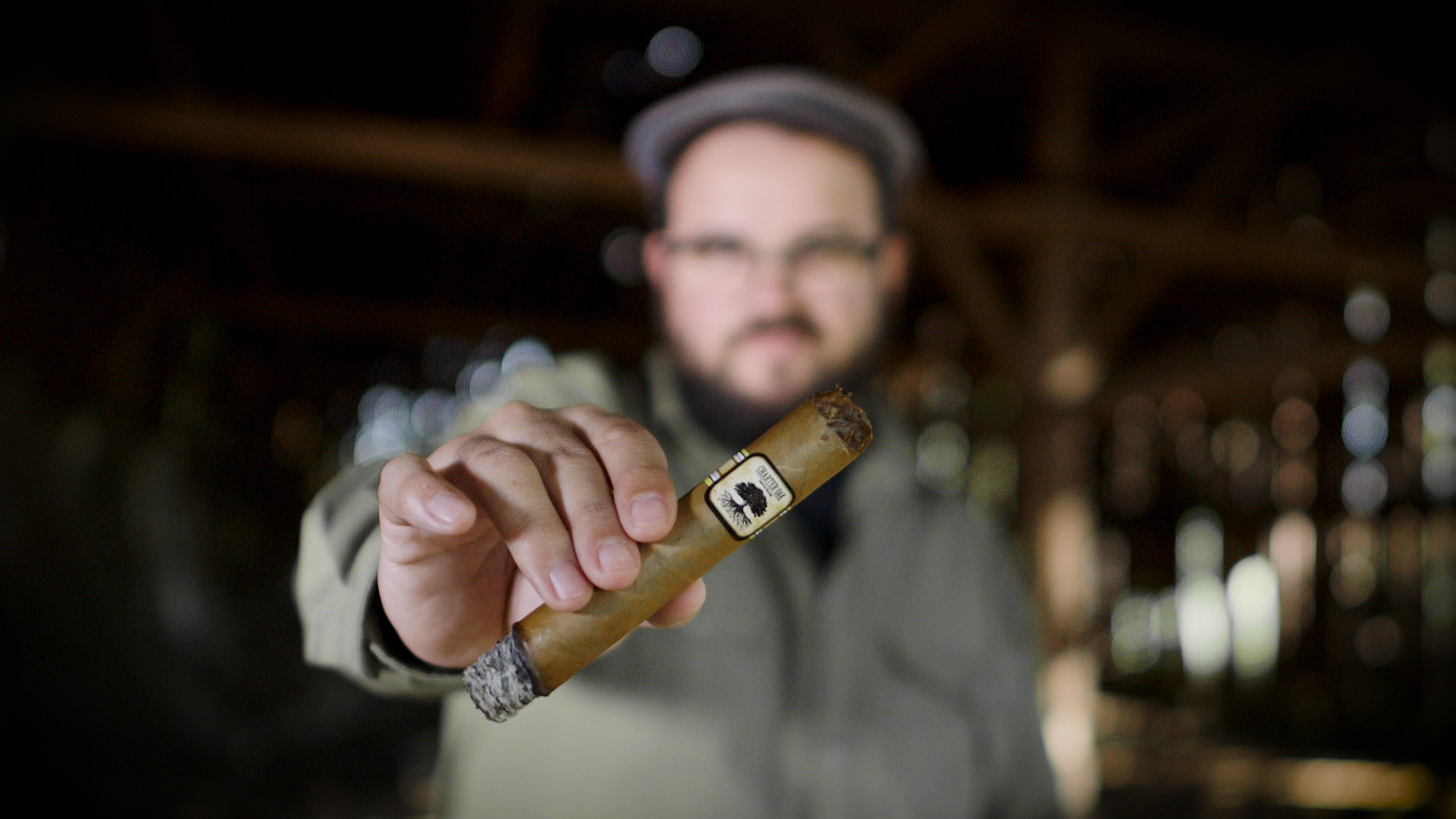
What was your first sale?
At the 2015 IPCPR trade show—sold to a shop in Pennsylvania called Wooden Indian Tobacco Shop and Cigar Lounge.
How do you build your relationships with your retail customers?
Brick by brick and stone by stone. First and foremost, we pour our hearts and souls into our products. This is the basis of our relationships. A commitment to quality and consistency. I built a portfolio of unique brands geared to any customer who walks through that door—from the blends to the price points, strength levels, complexity and infused hand-made cigars. If you only have Foundation Cigars in your humidor, you are bound to find a cigar for any customer who comes in.
I want retailers to know that our dedication to quality and consistency is the main pillar of Foundation. We are a small company and I have had to bootstrap it from the beginning. I didn’t take on any investors because I wanted to do things my way. But in order to do this, we had to start from the bottom.
We are now working hard for 2020 and continuing to improve customer service, from our in-house team to our sales team. We have been so busy wearing so many hats and have experienced a lot of growth in a short amount of time, so its tough to have things perfect. But that’s what we’re committed to: learning and growing.
There are shops on our list we want to target. We really want to work with “true tobacconists”—the shops primarily interested in the business of premium tobacco. That’s where brands are really made. Developing our relationships with retailers has mostly happened organically. We launched with only one brand, but having been on the business side, and getting to know a lot of retailers while I was in Nicaragua helped bring a good group of retailers on with us that first year, and a lot of it was driven by hard-core consumers.
We started out by focusing on the consumers and the retailers they knew, and it sort of spread from there. So now retailers are calling us! We’ve been growing so fast, in both demand and brand awareness.
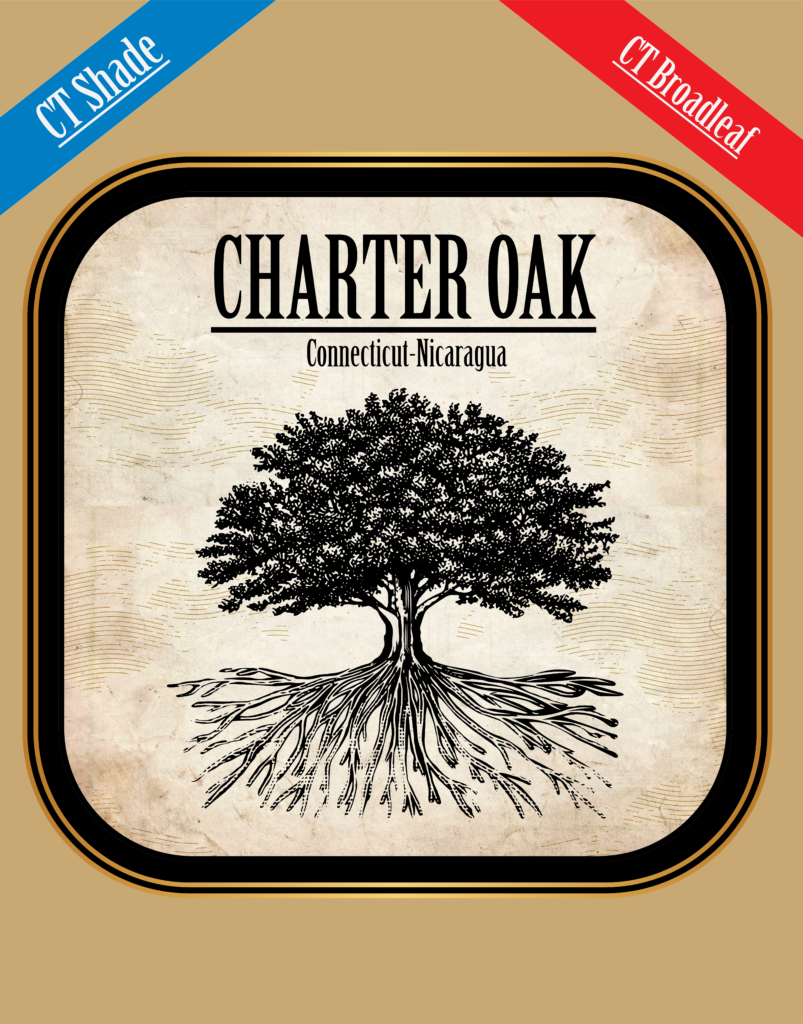
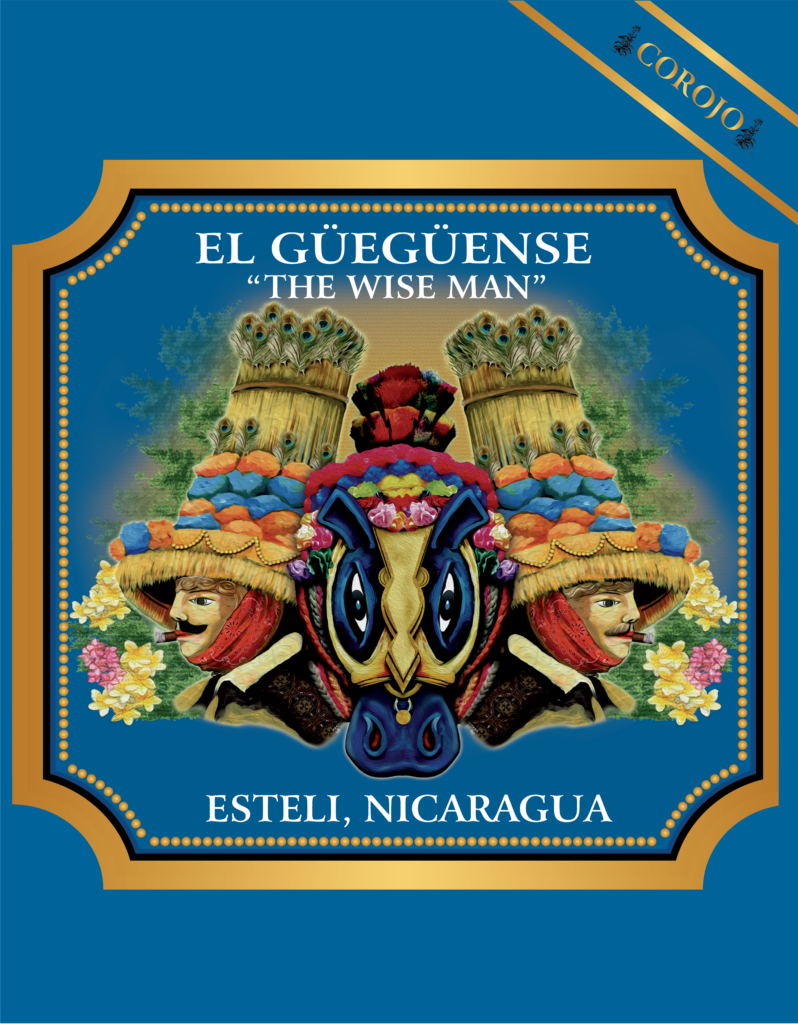
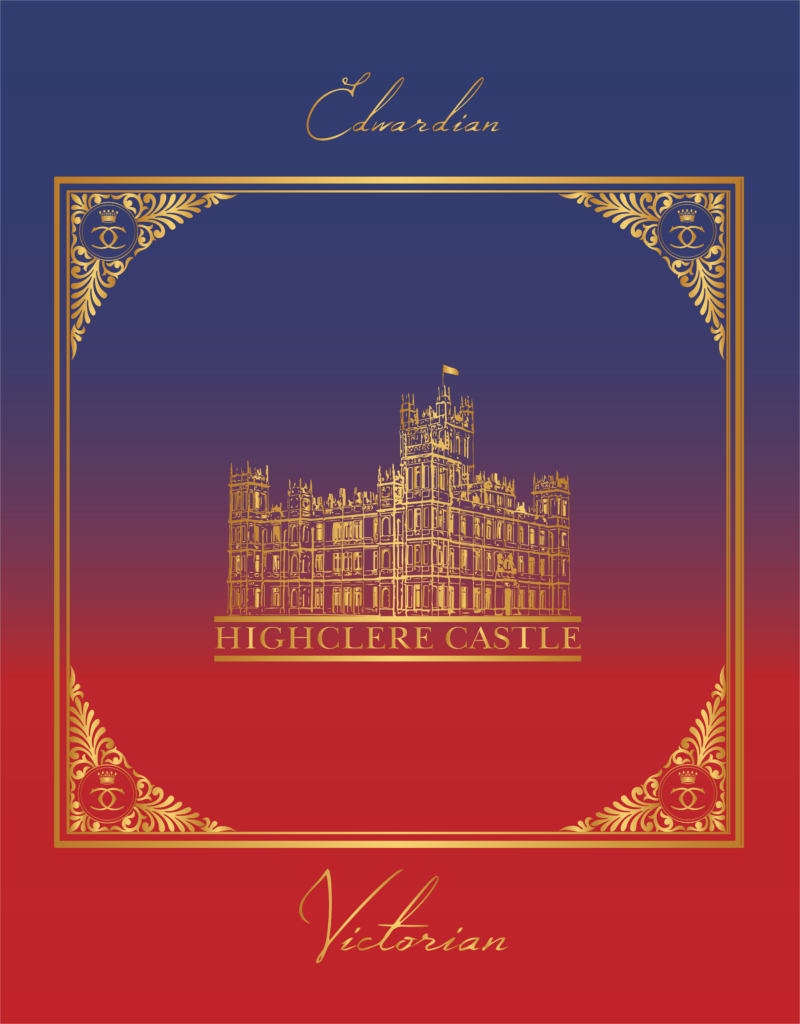
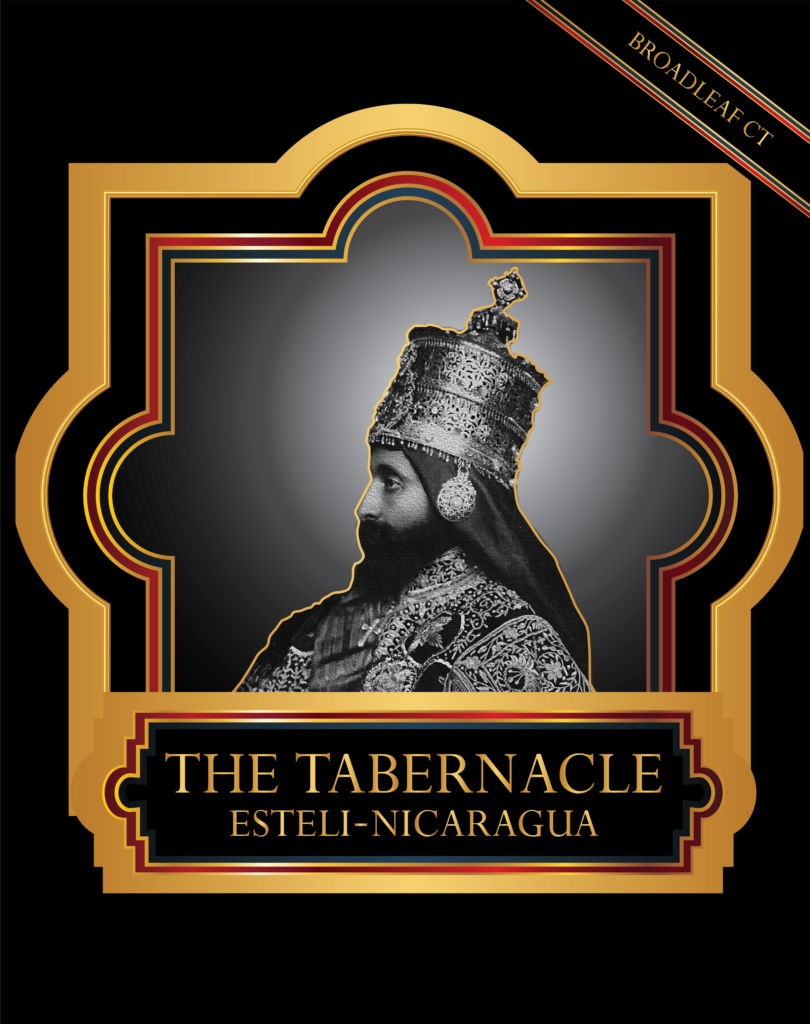
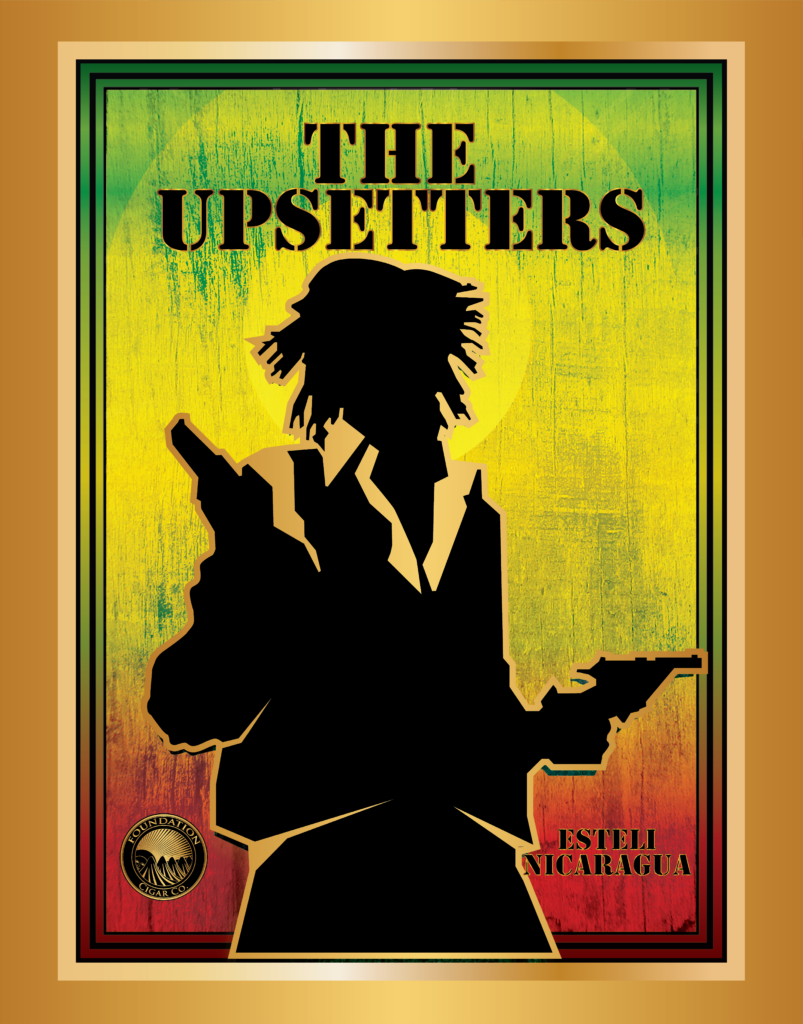
Foundation Cigar Brands
How do you carry out your mission to “provide the best hand-made cigars to connoisseurs around the world”?
I have been fortunate to build relationships with some of the best farmers and leaf suppliers in the world. This is the root of providing top quality hand-made cigars. It starts with the leaf. I have had an intimate relationship with the leaf, and early on started learning where certain flavor profiles come from through seed varieties, different countries of origin, fermentation, sorting and finally blending.
I work with incredible factories and quality control teams, and I spend the majority of my time in Nicaragua to ensure that our products are always on point.
This has been challenging for me, balancing the world of production and the world of sales and distribution. I have traveled extensively in an effort to visit many of our retail shops, and would love to visit all of them, but that is the challenge. We are a small company and each person wears a lot of hats.
How do you distinguish yourself from your competitors?
I think I have a unique experience and perspective, having worked retail in the height of the cigar boom, then moving to Nicaragua and working production. I developed a unique skill for blends and now I have great branding to complement these blends. Our branding is important—it’s rooted to the Nicaraguan history and culture, which is important to me. I couldn’t do it without Alex Garcia, our Art Director, who works with me to create all of our graphics and brand identity. We’ve been friends since around 2003, and we have really similar interests and that comes through in the product. Every brand is a homage to something that has made a huge impact in my life.
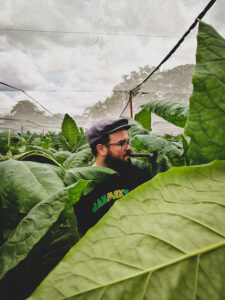
What have been some of your biggest challenges or obstacles since starting Foundation and how did you overcome them to get where you are now?
The FDA is definitely the biggest challenge—not having clarity, and the dark looming cloud all the time. I have FDA lawyers and we are constantly communicating, but the cloud still hovers.
Another challenge is that I’ve been on the manufacturing side since 2003, but now I’m learning all the other aspects of the business: sales and distribution, managing sales reps (managing people is definitely a challenge) and working with customers across the country.
I am very appreciative of the people who support our products and want to be sure each person knows how much that means. It’s difficult because it’s hard to always express the gratitude I feel, especially because it’s so busy, and I’m a people pleaser.
By not taking on investors, it’s enabled incredible organic growth, but this also means wearing a lot of different hats—I’m handling HR, marketing, packaging, quality control …. Luckily, we’ve been able to grow and add on more people, and we’re hoping to hire more in the next few months.
What has been your biggest success so far in your business?
First, having established so many great relationships with retailers and having them sell my product. Regardless if they’re a bigger, smaller or medium-sized retailer, having people support my products is a huge success for me. It means a lot. Also, being named the No. 3 cigar of the year from Cigar Aficionado and being named the No. 1 consensus cigar of the year two years in a row by Halfwheel!
What habits have helped make you successful?
- Surrounding myself with good people and people who are smarter than myself.
- Being straight-up no BS, especially on the operational side of things.
- Developing strong communications, reinforcing communications and overcommunicating.
- Good leadership team.
- I try to establish a healthy work/life balance and practice turning my phone off. I also want and encourage all my employees to have a personal life and enjoy it!
Anything you would have done differently?
To be perfectly honest, I don’t really look at things in life that way, because I take everything in life as a learning experience. I think things happen to help you evolve and grow as a person. They’re not stumbling blocks but stepping stones.
Other than deciding to work for yourself, what was the single most important decision you made that contributed to your success?
Hiring Alex Garcia aka Thief Operandi as my art director. Couldn’t do it without him.
How do you go about Marketing a premium cigar?
It’s a combination of good assets (video, animation, print work, photography, social media) and working with the retail stores, because they’re directly connected to the consumers. It’s important that retailers really understand our products and the portfolio we have to offer. If all you had in your humidor is Foundation, you’d still have something for everyone, based on both price point and blend. From the Highclere Castle Cigar to The Tabernacle to the El Güegüense and others, our line is as diverse as the palates of the consumers who smoke them.
What was your first paying job ever? How old were you?
I was around 13 or 14 years old and worked at a nursery cutting thorns off of roses. My dad was a florist and plant seller, so my brother and I would do this in the summer.
How do you use your creativity to influence?
I think the main purpose of creativity and art is to inspire. And I hope through our products, we inspire people. From the feedback we get from consumers about how much they enjoy our products—seeing the effect on final consumers is beyond words. Everyone’s going through stuff in their lives and cigar smoking is a time where you can leave it all behind.
Tell me about a person you admire. Why do you think they have made an important impact?
In the industry, Gustavo Cura, who works for Oliva Tobacco Company out of Tampa. He’s in charge of their Nicaraguan tobacco operations. When I was 24 and moved down there, Gustavo always treated me with the upmost respect and taught me so much about the production and the business. He is definitely one of my mentors in the industry. He’s a true tobacco guy through and through and he’s a no BS kind of guy—gives it to you straight.
Which have been your most successful marketing and advertising channels?
Instagram. The company started off of my personal [Instagram] account, and then we moved it over to a business account and its sort of taken on a life of its own from there. We’re working on getting Facebook and YouTube going now. At last year’s PCA Trade Show, we debuted a time-lapse SEED TO CIGAR video that we worked on for over a year. [The video] starts by showing seeds in my hand and takes you through the whole process. We released a 1-minute version and a 10-minute short film.
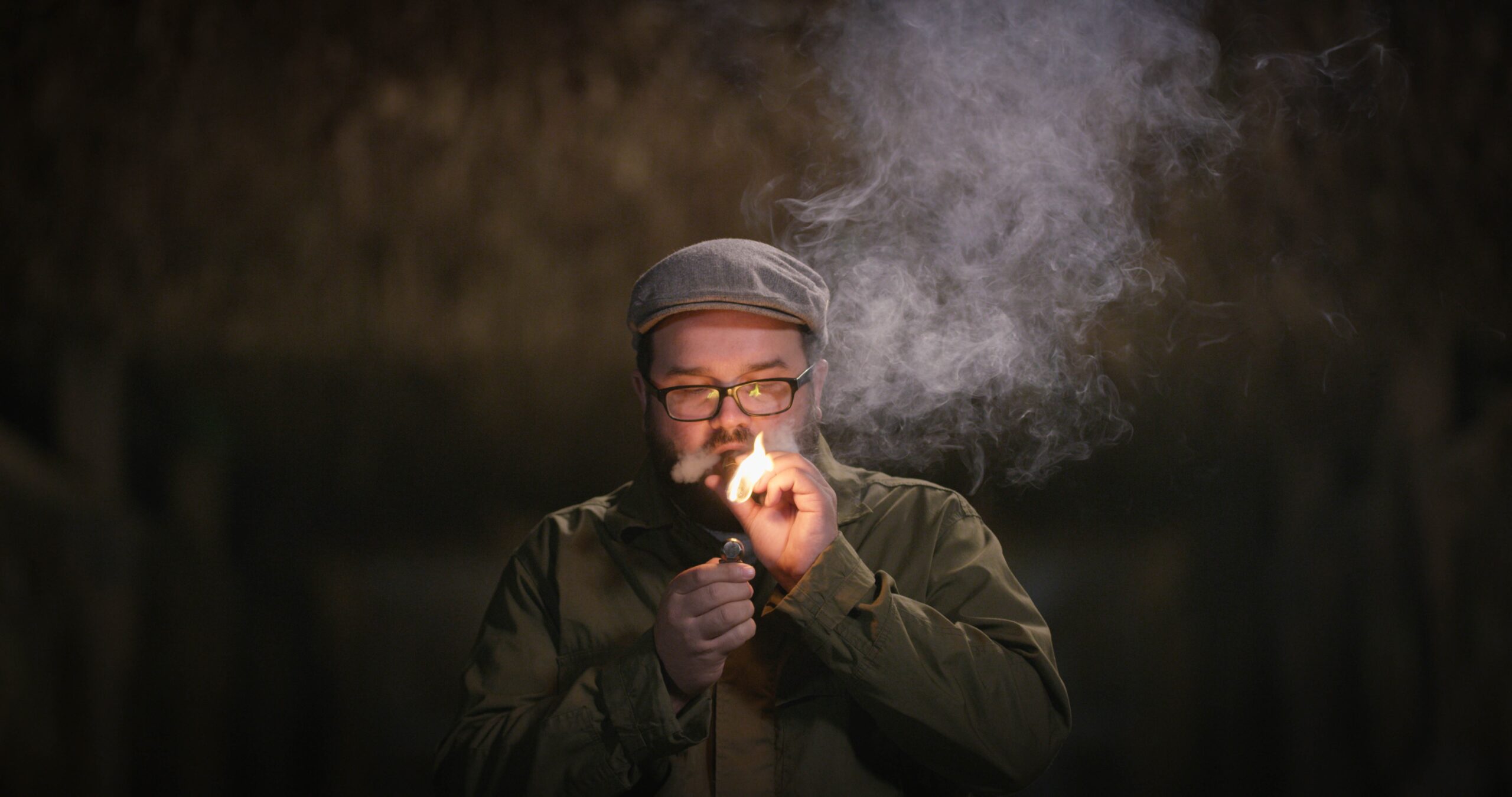
Can you tell me a story about the first cigar you ever smoked?
My first official cigar was at Christmas with my grandpa and brother. It was an Arturo Fuente Opus X No. 2 (Torpedo). At 18 years old, smoking a cigar with my grandfather as he shared war stories—doesn’t get any cooler than that. Being from Connecticut, I was always aware of the state’s deep tobacco history and culture, and up until the 1990s, there were still a lot of cigar brands and factories in the state.
If you weren’t doing this, what would you be doing right now?
I’d probably be in the music business. Or maybe the travel industry somehow. Or a comedian.
Any exciting company news you can share with us?
Definitely. It’s going to be an exciting show for us this year—we’re going to be releasing the 5-year ‘Anniversario’ of our first brand, El Güegüense. For me, this is a very special product because it represents the heart and soul of Nicaragua and my experience living there since 2003; the image of El Güegüense is like the statue of liberty for Nicaragua. It is the oldest indigenous satire of the Western Hemisphere and is protected by UNESCO as a world heritage folk dance.
If you could change one thing in the world, what would it be?
FDA. Remove FDA altogether for premium cigars. Premium cigars pose no public health threat. Kids don’t smoke premium cigars. Everyone knows this and all the statistical information shows this.
Who inspires you?
The hip-hop artists “The Reminders.” They’re a husband and wife duo, have three kids and have managed to create a career in the music industry—and they did it all themselves. And to be able to keep such a positive influence on the music they’re creating and their kids—I’ve never met such polite, smart and respectful kids. They inspire to keep it positive. I was lucky enough to collaborate on the music video “Foundation” with them and they’ve performed with us at some IPCPR trade shows.
Where do you plan to be in 10 years?
I just love cigars. I hope to still be in the industry and hope Foundation Cigars has become one of those staple brands in the humidor. I also hope I’m not traveling; I hit a million miles a few years ago, and this year I’m going to be spending a lot more time in Nicaragua. In 10 years I’d like to be spending more time in one place.
Where do you go/what do you do on a night out?
In Estelí (Nicaragua), I usually go up into the mountains. There’s a great place—El Tisey—very peaceful, relaxing, there’s a family-run B&B and a great spot, El Mirador scenic overlook,where you can see the entire valley of Estelí.
Which three words best describe you?
Passionate. Funny (king of corny jokes). Outgoing.
Tell me something about yourself that might surprise people?
I’m really into Ethiopian history and Egyptian history.
If you had one piece of advice for someone just starting out in the industry, what would it be?
For retail shops: Create an environment that is not intimidating. A lot of times, people are intimidated walking into a humidor, especially when they aren’t hardcore into cigars. Just really understanding everything that’s in your humidor and getting the right product to the right customer. Sometimes cigar people can get really cliquey—it’s really important to create that friendly environment.
